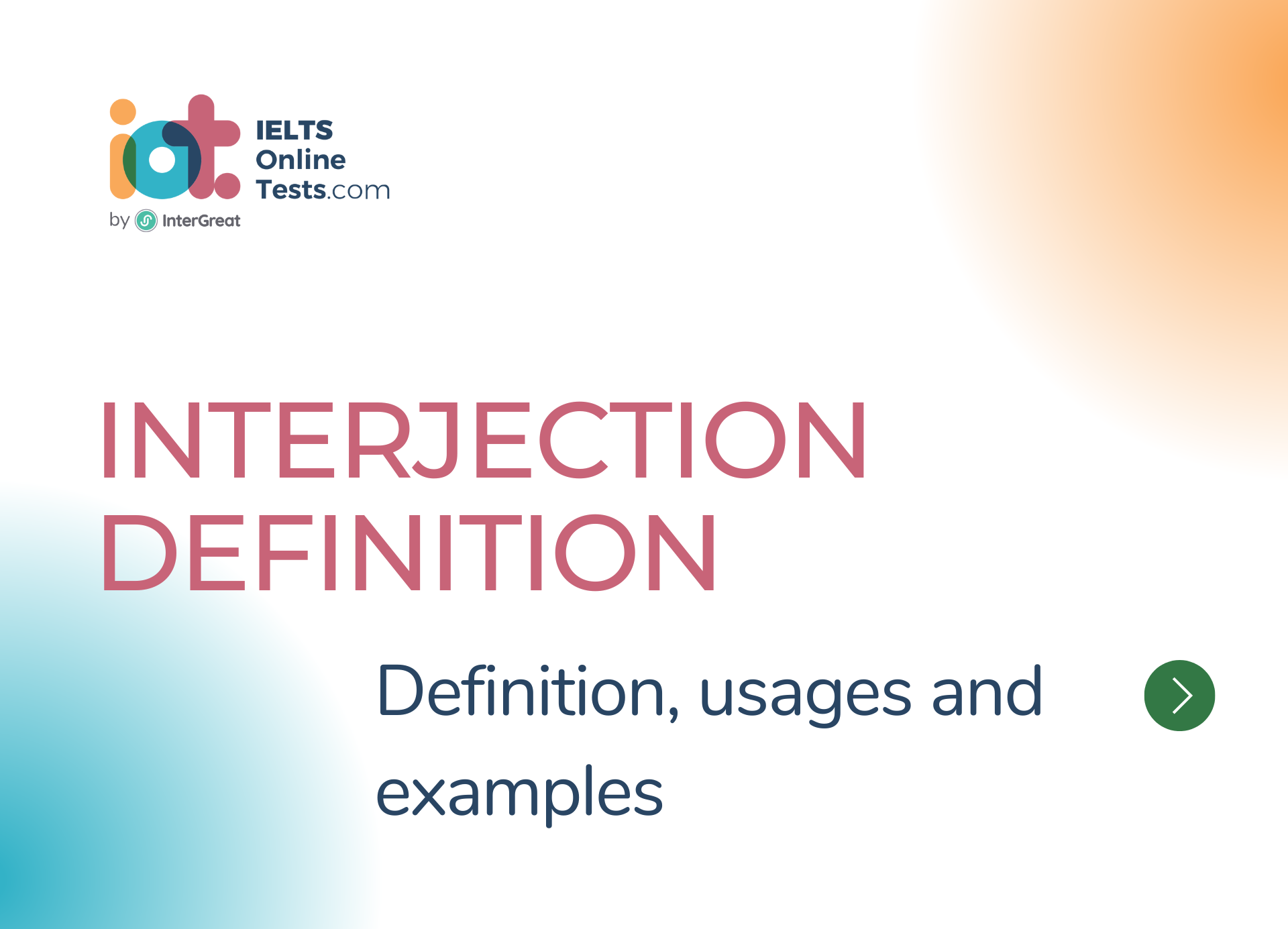
Interjection definition, usages and examples
Interjections are words or phrases that are used to express strong emotions, sudden reactions, or brief remarks. They are often used to convey feelings such as surprise, joy, frustration, or excitement.
Here are some key points about interjections:
Function:
- Interjections serve as standalone words or phrases that express emotions or reactions.
- They are not grammatically connected to the rest of the sentence and can be used independently.
Examples of Interjections:
Expressing Surprise or Amazement:
- "Oh my goodness!"
- "Wow, that's incredible!"
- "Good heavens!"
Expressing Pain or Discomfort:
- "Ouch! That hurt!"
- "Ow, my leg!"
- "Yikes, that's hot!"
Expressing Joy or Excitement:
- "Yay! We won the game!"
- "Hooray! It's my birthday!"
- "Yahoo! I got the job!"
Expressing Mistakes or Accidents:
- "Oops! I dropped my phone."
- "Uh-oh, I forgot to bring my keys."
- "Darn, I made a typo."
Expressing Realization or Understanding:
- "Ah, now I see what you mean."
- "Aha, I finally figured it out!"
- "Got it! That makes sense."
Expressing Attention or Calling Someone:
- "Hey, wait for me!"
- "Psst, come here, I have a secret."
- "Yo, what's up?"
Expressing Alarm or Concern:
- "Oh no, we missed the bus!"
- "Yikes, that's a huge spider!"
- "Help, I'm stuck!"
Expressing Admiration or Praise:
- "Bravo! That was an amazing performance."
- "Well done, you aced the test!"
- "Excellent job, keep up the good work!"
Placement and Punctuation:
- Interjections are often placed at the beginning or in the middle of a sentence, followed by an exclamation mark or a comma.
- The punctuation used depends on the intensity of the emotion or the structure of the sentence.
Use and Intensity:
- Interjections are used to add emphasis, convey emotions, or express a sudden reaction.
- The intensity of an interjection can be varied by factors such as tone, volume, and context.
Variations and Informal Language:
- Interjections can vary across languages and cultures, and they may have different forms or expressions.
- They are often used in informal or conversational language and can reflect the speaker's personality or mood.
Function in Writing:
- Interjections add liveliness and emotion to writing, helping to engage the reader or convey the writer's feelings.
- They are commonly used in creative writing, dialogues, exclamatory statements, or to add a conversational tone.
It's important to note that while interjections add color and expressiveness to language, they should be used judiciously and appropriately for the desired effect. The tone, context, and delivery play a significant role in the overall impact of an interjection.




